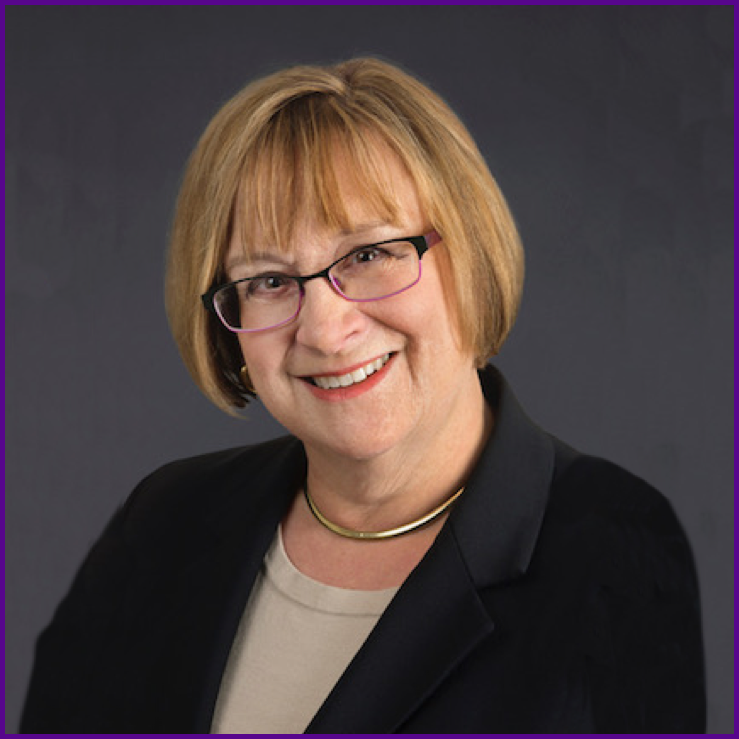COVID-19 Series: Q&A with Prof. Kimberly Glassman
March 27, 2020
“This event has shown just how interdependent our communities are, in our country and our world. Every action has the potential for a reaction that can negatively impact another or positively impact someone . . . The positive impacts come from understanding that our behavior matters and can save lives.”

Prof. Kimberly Glassman, PhD, RN, FAAN, is an expert on the nurses’ role in fostering health promotion. She is the associate dean for partnership innovation and a clinical professor at NYU Meyers.
What is the role of the nurse in the COVID-19 pandemic?
Nurses are on the front lines of an infectious disease outbreak and have a multi-faceted role. We are the direct care providers for patients and families in this crisis — in hospitals, critical care units, clinics, and ambulatory care centers. And we are public health leaders and educators. As nursing is the most trusted profession, nurses' voices need to be heard loudly across the nation and the world , messaging proper care and support to our communities. This year, 2020, was designated by the World Health Organization as the Year of the Nurse and the Midwife, in honor of Florence Nightingale's 200th birthday. We have shifted rapidly from a global celebration of nurses to dealing with a pandemic where Nightingale's basic practices, such as hand washing and using data to inform decisions, are even more important today.
How can we support nurses and other healthcare workers on the front line, whose work and expertise are vital to containing this virus?
We can support them by following established public health principles and the messages from government officials — stay home! Cities and towns need everyone who can do so to work from home. No public gatherings and minimize contact with others who are not in your immediate household. Remain 6‒10 feet apart through physical distancing. span>
Health care professionals as essential workers must go to work to care for patients, so by staying home, the public helps to reduce the population density and thus reduces potential and actual exposures.
How prepared are most healthcare systems in the United States for a pandemic like this one?
They are prepared — to a point. All hospitals have to plan for various emergencies through formal emergency preparedness efforts required by regulatory agencies. So, most have done a table-top exercise, modelling their ability to respond to a pandemic. Sometimes hospitals participate in city- and state-wide exercises to test the larger infrastructure’s ability to support a healthcare system in such an event.
We know we have the knowledge and expertise to care for patients, and we also know that in a large-scale event, we would not have ample resources to care for a high number of people impacted. In some of these “worst-case” scenarios, a large portion of the health professional workforce is also impacted, so we model how we would care for patients under a variety of test scenarios.
As the world was watching what was happening across the globe, hospitals in the United States were thinking about what they would do if the virus came here. In the global world we live in, it’s not enough for one country to prepare. Preparedness efforts must be global to inform future pandemics.
Why can't current healthcare systems handle this virus without society taking extraordinary measures like weeks-long social distancing and closing schools? What makes this virus such a threat?
This is a “novel” virus, meaning it has never before been detected in humans. No one has any natural immunity, and there are no vaccines. So, we are learning about its effect on the body as the illness unfolds. If someone is sick with the virus, there are no treatments, only supportive care. The best thing is to not get sick.
There are many predictive models that are being shown in the media; the worst-case scenario, if no protective measures are taken, is a highly contagious illness that will affect many millions. Some percentage of these people will be sick enough to require hospitalization, and a fraction of them will require critical care. No country has enough hospital workers or hospital beds to manage this volume of patients. We look to China, where it is believed the initial outbreak occurred, and their experience in having to manage a huge volume of sick people with not enough hospital beds or personnel.
Once COVID-19 is contained, how can we take the lessons from this crisis to move forward as a better community, society, and healthcare system?
This event has shown just how interdependent our communities are, in our country and our world! Every action has the potential for a reaction that can negatively impact another or positively impact someone. Negative impacts are the flaunting of both basic public health rules and good practices like handwashing. The positive impacts we can have come from understanding that our behavior matters and can save lives. Hopefully, we will come through this with a stronger commitment to social justice and caring for each other, and people will realize how special the nursing profession is and want to become nurses!